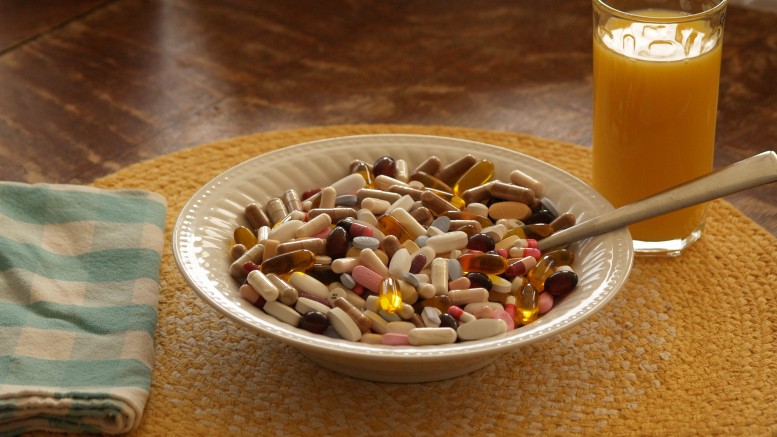Individuals suffering from chronic illnesses are supposed to take their medicine consistently, but when a patients forgets to do that, or days are skipped between prescription refills, the results can be severe enough to require a doctor’s intervention.
Medical nonadherence (i.e. when a patient does not take his medication in the appropriate way) accounts every year for up to $300 billion in health care costs are attributed to “medical nonadherence.” Today, researchers are hoping that an ingestible detector the size of a grain of sand will change that, improving what the medical community calls “compliance”.
For the very first time, an FDA-approved medication has been joined with a detector to monitor medical adherence. Proteus Digital Health has teamed up with Otsuka Pharmaceutical Co. to join Abilify — which treats schizophrenia, bipolar disorder, and depression — with a detector that monitors when a patient has actually taken his drug. The businesses are awaiting FDA approval for the combination of the drug with the detector system, although the FDA has approved both Abilify and the ingestible detector individually.
How the digital pill operates
For the drug/sensor hybrid to properly work, the individual must wear an additional patch made by Proteus, and download a program on their phones. When the patient takes the drug, a minimal voltage is generated by the digestive juices will then sends a signal to the patch. The patch will then timestamp when the drug was taken. The FDA will decide whether the detector-embedded Abilify is clear to hit pharmacy shelves by April 26, 2016.
“It is widely acknowledged that, on average, only about half of all patients require their medical therapy accurately,” George Savage, cofounder and chief medical officer of Proteus, told Tech Insider. “Physicians tend to attribute the patient, but it is more complicated than that. Patients of course want to get well but what we are giving them with medical therapy is an open system with no feedback.”
Without ingesting the sensor, the patch will quantify metrics like heart rate, temperature and actions taken, which can help signal the basic ways the body is responding to the drug or just supply a more complete perspective of your day-to-day health.
If occasionally a patient isn’t in range with their phone, the patch it can nonetheless save the information to forward it at a later date, and it’s able to store seven days-worth of info. The patch is ought to be changed each week to work.
“Many times when a doctor is asking if you are taking your drugs, and also the patient says yes, they are right even if they are not considering it the method by which the physician means it,” Savage said.
Savage further explained that by tracking how patients are taking their drugs, doctors can plan their therapeutic intervention in the most appropriate way. However, patients should first accept that their doctors will be able to access the medical files generated by the Proteus technology.
[wp_ad_camp_3]
The patch was approved as a medical device by the FDA in the year 2012. The sensor was additionally cleared by the FDA in 2012 only when embedded in a placebo. This means patients were able to take the Proteus placebo with their regular medication for the same type of results, but by taking definite measures to digitizing FDA-approved drug, Proteus is revealing that digitizing medicine is really on the horizon.
“Proteus itself is in the procedure for digitizing a number of generic pharmaceuticals which are safe, successful and off patents,” Savage said. “We now are in process with the FDA on two such drugs.”
Savage said the drugs they will be able to work to treat other cardio-metabolic illnesses including excess body fat, high blood sugar levels and high blood pressure. These chronic ailments put individuals at high risk for diabetes or cardiovascular disease.
Novartis creates drugs that treat many different issues, from asthma to Multiple Sclerosis.
Digitizing health care will be an unavoidable step in the future, Savage said, adding that the HealthKit from Apple — which stores information associated with health and fitness — is just one example of it reaching the mainstream.
“The digital health field is a good deal bigger than just Proteus,” Savage said.
Article by Claudio Butticè
REFERENCES
- Proteus, Press release, U.S. FDA Accepts First Digital Medicine New Drug Application for Otsuka and Proteus Digital Health. September 10, 2015.
- Sabaté E, editor. Adherence to long-term therapies: evidence for action. Geneva, Switzerland: World Health Organization; 2003.
- Iuga AO, McGuire MJ. Adherence and health care costs. Risk Management and Healthcare Policy. 2014;7:35-44.
